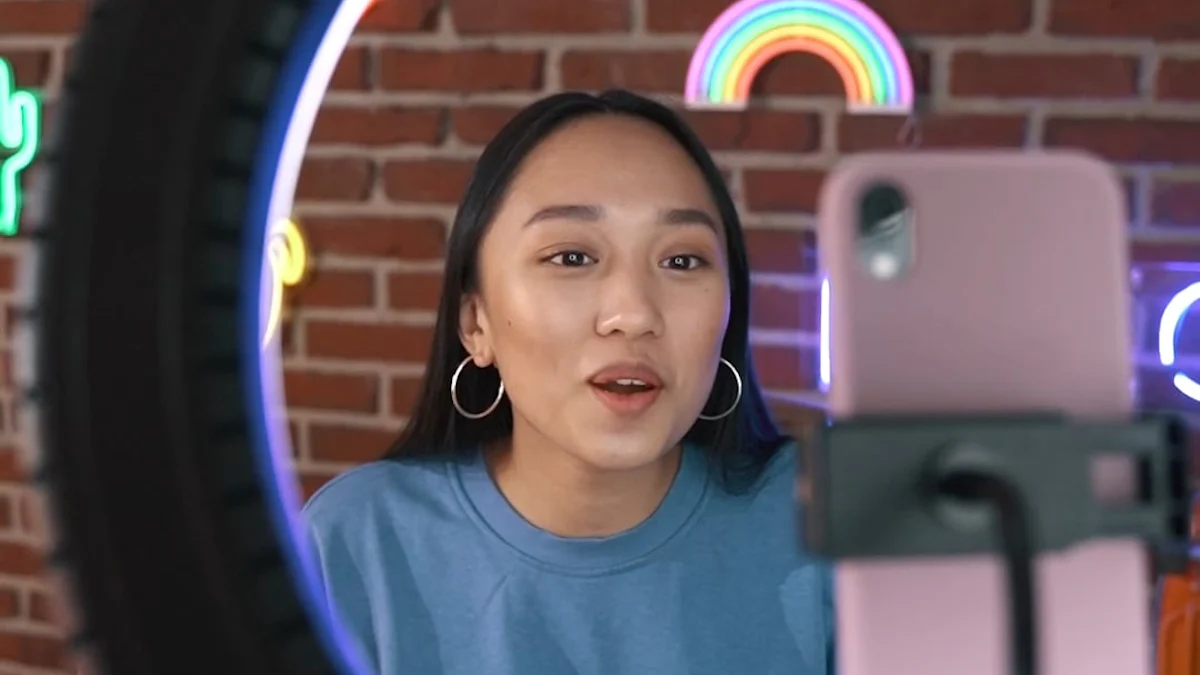Top 10 Influencer Marketing Agreement Templates for 2025

Influencer marketing is booming in 2025, with the industry now worth $21.1 billion, a massive leap from $1.7 billion in 2016. This growth shows how much brands rely on influencers to connect with their audiences. But without a solid influencer marketing agreement, things can get messy. Misunderstandings about payment, content rights, or deadlines can derail campaigns.
That’s where a well-crafted contract comes in. It protects both you and the influencer, ensuring everyone’s on the same page. Using a template makes this process even easier. You can quickly outline the scope of work, payment terms, and other key details without starting from scratch. Templates save time and help you stay compliant with legal standards, so you can focus on building successful partnerships.
Key Features of an Influencer Marketing Agreement
When you’re working with influencers, having a solid agreement in place is non-negotiable. It sets clear expectations and protects both parties. Let’s break down the key features every influencer marketing agreement should include.
Essential Components
Scope of Work
The scope of work outlines exactly what the influencer will do. This includes the type of content they’ll create, the platforms they’ll post on, and the deadlines they need to meet. For example, will they post one Instagram Reel or three TikTok videos? Be specific. A clear start and end date for the campaign is also crucial. This ensures everyone knows when the collaboration begins and ends.
Payment Terms
Money matters can get tricky without clear terms. Your agreement should specify how much you’ll pay the influencer and when. Will it be a flat fee, or will they earn based on performance metrics like clicks or sales? If you’re working with affiliate marketing, include details about commission structures and tracking methods.
Content Ownership and Usage Rights
Who owns the content once it’s created? This is a big question. Some brands want full ownership, while others only need usage rights for a specific time. Make sure your contract spells this out. Also, include clauses about derivative content, like whether you can repurpose their posts for ads.
Confidentiality and Non-Disclosure Clauses
Sometimes, you’ll share sensitive information with influencers, like product launches or marketing strategies. A confidentiality clause ensures they won’t spill the beans. This protects your brand and keeps your campaigns under wraps until you’re ready to go public.
Legal and Compliance Considerations
FTC Guidelines for Influencer Marketing
The Federal Trade Commission (FTC) has strict rules for influencer marketing. Influencers must disclose any material connections with your brand, like payments or free products. These disclosures need to be clear and easy to spot. For example, a simple “#ad” or “Sponsored” tag works well. The FTC also requires influencers to give honest reviews. If they haven’t tried your product, they can’t endorse it.
International Campaign Compliance
If your campaign crosses borders, things get more complex. Different countries have unique advertising laws. For instance, some require disclosures in the local language. Currency conversion and tax compliance are other factors to consider. Make sure your agreement covers these details to avoid legal headaches.
Pro Tip: A poorly written contract can lead to disputes. For example, FabFitFun sued an influencer agency for failing to deliver promised endorsements. Clear terms in your agreement can help you avoid similar issues.
By including these elements, you’ll create a strong foundation for your influencer partnerships. Whether you’re using an influencer contract template or drafting one from scratch, these features are essential for success.
Top 10 Influencer Marketing Agreement Templates

General Influencer Agreement
Best for: Standard influencer collaborations.
Key Features: Scope of work, payment terms, and content rights.
A general influencer agreement is your go-to option for most collaborations. It’s versatile and works well for short-term projects, long-term partnerships, or even brand ambassador agreements. This type of contract ensures both you and the influencer understand your expectations. It clearly outlines the work to be done, deadlines, and payment schedules. This clarity is essential for a smooth influencer marketing collaboration.
Using a general influencer contract template also gives you legal protection. It helps you control how the influencer represents your brand and provides a safety net if things go south. Plus, it ensures compliance with legal and regulatory standards, which is crucial for maintaining your brand’s reputation. If you’re looking for quick solutions, you’ll find free influencer contract templates online. Some even offer options tailored to different campaign types, like short-term or ambassador agreements.
Social Media Collaboration Agreement
Best for: Instagram, TikTok, and other social media campaigns.
Key Features: Platform-specific clauses and deliverables.
Social media collaboration agreements are perfect for campaigns on platforms like Instagram or TikTok. These contracts focus on platform-specific needs, such as deliverables, performance guarantees, and dispute resolution clauses. They also address scope creep, ensuring influencers stick to the agreed tasks without adding extra work.
This type of agreement often includes non-compete clauses and clear termination terms. It’s especially useful for managing influencer outreach strategies, as it specifies tools and policies for unpaid invoices. If you’re running a multi-platform campaign, umbrella agreements can simplify things by covering multiple services under one contract.
Sponsored Content Agreement
Best for: Blog posts, videos, and other sponsored content.
Key Features: Content approval process and exclusivity terms.
Sponsored content agreements are ideal for campaigns involving blog posts, videos, or advertorials. They help set clear expectations for both parties, including content deliverables and deadlines. These contracts also outline the review and approval process, ensuring the final product aligns with your brand’s vision.
Legal protection is another big advantage. If an influencer’s actions harm your brand, this agreement gives you recourse. It also ensures compliance with advertising standards, keeping your influencer marketing campaign above board. Successful campaigns like Vanguard’s podcast sponsorship or Hot Wheels’ advertorials show how effective these agreements can be.
Pro Tip: Always include exclusivity terms to prevent influencers from promoting competing brands during your campaign.
Affiliate Marketing Agreement
Best for: Influencers promoting products through affiliate links.
Key Features: Commission structure and tracking methods.
Affiliate marketing agreements are perfect for collaborations where influencers promote your products using affiliate links. These agreements clearly define how influencers earn commissions, ensuring transparency and trust. You’ll want to include a detailed commission structure to motivate your partners.
Here are some effective commission models:
- Percentage-based: Pay a percentage of each sale the influencer generates.
- Fixed-rate: Offer a set amount for every sale or action.
- Tiered: Reward higher sales with increased commission rates.
- Recurring: Provide ongoing commissions for subscription-based services or repeat purchases.
Tracking methods are equally important. Real-time tracking tools, promo code tracking, and server-to-server tracking help you monitor performance and prevent fraud. These tools also provide detailed analytics, so you can optimize your campaigns. A well-crafted affiliate marketing agreement ensures influencers understand their role and your expectations, creating a win-win partnership.
Event Promotion Agreement
Best for: Influencers promoting live or virtual events.
Key Features: Event-specific deliverables and timelines.
If you’re hosting an event, an event promotion agreement is essential. This type of contract outlines the influencer’s responsibilities, such as creating pre-event buzz or live-streaming during the event. It also specifies deadlines for deliverables, like when to post promotional content.
For example, you might ask an influencer to share three Instagram Stories a week before the event and one live post during the event. Clear timelines ensure everything runs smoothly. Including clauses for cancellation or rescheduling protects both parties if plans change.
This agreement also helps you manage expectations. Influencers know exactly what’s required, and you can focus on making your event a success. Whether it’s a product launch or a virtual conference, this contract keeps everyone aligned.
Product Review Agreement
Best for: Influencers reviewing products or services.
Key Features: Honest review clauses and product return policies.
Product review agreements are ideal for campaigns where influencers test and review your products. These contracts ensure reviews are honest and transparent, which builds trust with your audience. You can include clauses that require influencers to disclose their relationship with your brand, following FTC guidelines.
It’s also smart to address product returns. Will the influencer keep the product, or should they send it back? Clear policies prevent confusion. Adding confidentiality clauses protects sensitive information, like unreleased product details.
Dispute resolution clauses are another must-have. They provide a roadmap for handling disagreements, ensuring issues don’t derail your campaign. A strong product review agreement sets the stage for authentic, impactful collaborations.
Long-Term Partnership Agreement
Best for: Ongoing collaborations with influencers.
Key Features: Retainer fees and performance metrics.
Long-term partnership agreements are perfect if you’re looking to build lasting relationships with influencers. These contracts help you establish a consistent collaboration, ensuring both you and the influencer are aligned on goals and expectations. They’re especially useful for campaigns that require ongoing content creation or brand representation.
One of the biggest advantages of long-term agreements is the ability to plan better. You can map out posting schedules, timelines, and even product launches in advance. This clarity benefits both parties. Plus, influencers gain a deeper understanding of your brand, which leads to more authentic and creative content.
| Advantage | Description |
|---|---|
| Stronger Relationships | Build genuine connections with influencers for authentic content creation. |
| Better Planning | Plan posting schedules and timelines more effectively. |
| Defined Contracts | Clearly outline expectations, including payment and deliverables. |
| Simplified Budgeting | Streamline billing processes for both parties. |
| Creative Freedom | Allow influencers to align their creativity with your brand’s vision. |
Performance metrics are another key feature of these agreements. Metrics like customer retention, engagement rates, and new customer acquisition help you measure the success of your campaigns. For example, tracking customer satisfaction ensures your partnership delivers value to your audience.
| Metric | Description | Importance |
|---|---|---|
| Customer Retention | Percentage of customers who stay loyal post-acquisition. | Reflects the ability to maintain strong relationships and drive long-term revenue. |
| Customer Engagement | Measures ongoing interactions with your brand. | Shows commitment to nurturing relationships and delivering ongoing value. |
| New Customers Acquired | Number of new customers gained through the partnership. | Indicates success in expanding your customer base. |
A long-term influencer marketing agreement simplifies your influencer outreach efforts. It ensures you and the influencer are on the same page, making it easier to achieve your campaign goals.
Micro-Influencer Agreement
Best for: Collaborations with smaller, niche influencers.
Key Features: Budget-friendly terms and flexible deliverables.
Micro-influencers are a hidden gem in influencer marketing. They may have smaller followings, but their audiences are highly engaged. This makes them ideal for targeting niche markets. With a micro-influencer agreement, you can collaborate with these influencers without breaking the bank.
Micro-influencers engage in 22.2 times more conversations about recommendations weekly compared to average consumers. This level of interaction is invaluable for building trust and driving conversions. They also excel at connecting with specific demographics, making your campaigns more efficient.
For example, brands like Glossier and Daniel Wellington have successfully used micro-influencers to promote their products. Glossier’s campaign generated over 100,000 user-generated content posts, while Daniel Wellington saw a 15% increase in sales.
| Brand | Campaign Description | Results |
|---|---|---|
| Glossier | Promoted Phase 1 Set with micro-influencers showcasing products in daily routines. | 100,000 user-generated content posts |
| Daniel Wellington | Collaborated with micro-influencers to share personalized photos of watches. | 15% increase in sales |
A micro-influencer agreement typically includes flexible deliverables and budget-friendly terms. This allows you to test different strategies without committing to a large investment. It’s a win-win for both parties, as influencers get to showcase their creativity while you reach a highly relevant audience.
Influencer Agency Agreement
Best for: Brands working with influencer agencies.
Key Features: Multi-influencer management and reporting.
If you’re managing multiple influencers, an influencer agency agreement can save you a lot of time and effort. These contracts are designed for brands working with agencies that represent several influencers. They streamline the process by consolidating communication, deliverables, and reporting under one umbrella.
One of the biggest challenges of working with influencer agencies is navigating the legal landscape. Your agreement should clearly outline compliance with advertising laws, payment terms, and content ownership rights. This protects your brand from potential liabilities.
Tip: Always include edit approvals in your contract. This ensures influencers maintain their creative integrity while meeting your brand’s expectations.
Agreements with agencies also address unique issues like regulatory compliance and influencer accountability. For example, you can include clauses that specify how disputes will be resolved or how performance will be measured. This level of detail helps you avoid misunderstandings and ensures a smooth collaboration.
By using an influencer agency agreement, you can focus on your campaign strategy while the agency handles the day-to-day management. It’s an efficient way to scale your influencer marketing efforts without sacrificing quality.
International Influencer Agreement
Best for: Cross-border influencer collaborations.
Key Features: Currency conversion, tax compliance, and cultural considerations.
Working with influencers across borders can open up exciting opportunities for your brand. But without a proper agreement, things can get complicated fast. That’s where an international influencer agreement comes in. It helps you navigate the unique challenges of global collaborations while keeping everything organized and professional.
One of the biggest hurdles in international campaigns is currency conversion. You’ll need to decide how payments will work. Will you pay influencers in their local currency or yours? Including clear terms in your agreement avoids confusion and ensures everyone gets paid correctly.
Tax compliance is another critical factor. Different countries have different tax laws, and you don’t want to run into trouble. Your agreement should outline who’s responsible for taxes and how they’ll be handled. This protects both you and the influencer from unexpected issues.
Cultural considerations are just as important. What works in one country might not resonate in another. Your agreement should encourage influencers to adapt their content to fit their audience’s preferences. For example, a campaign in Japan might require a more formal tone, while one in Brazil could be more casual and vibrant.
Using a template for your international influencer agreement can save you time and effort. It provides a solid starting point, so you don’t have to create everything from scratch. Just make sure to customize it to fit the specific needs of your campaign.
With the right agreement in place, you can build strong, successful partnerships with influencers worldwide. It’s all about setting clear expectations and addressing potential challenges upfront.
Customizing Influencer Contract Templates

Tailoring Templates to Campaign Goals
Short-term vs. long-term collaborations
When customizing a contract, you need to think about the duration of your collaboration. Short-term campaigns often focus on quick wins, like boosting sales during a holiday season. These agreements should emphasize clear deliverables and tight deadlines. On the other hand, long-term partnerships require a broader approach. You’ll want to include performance metrics, retainer fees, and a roadmap for ongoing content creation. This ensures both you and the influencer stay aligned over time.
Your marketing strategy should also align with your business goals. While short-term gains are great, make sure your approach supports long-term growth. This balance helps you build sustainable relationships with influencers while achieving immediate results.
Product-focused vs. brand awareness campaigns
The type of campaign you’re running also impacts how you customize your agreement. For product-focused campaigns, you’ll want to track metrics like lead conversions and website traffic. These numbers show how well the influencer drives sales. For brand awareness campaigns, focus on social media engagement. High likes, shares, and comments indicate your message is resonating.
To tailor your template effectively, start by defining your target audience. Think about their demographics, psychographics, and behavioral patterns. Creating detailed buyer personas can help you craft a campaign that speaks directly to your audience.
| Metric Type | Description |
|---|---|
| Website Traffic | Measures the number of visitors to your campaign page |
| Lead Conversions | Tracks how many leads were generated from the campaign |
| Social Media Engagement | Assesses interactions on social media platforms |
Ensuring Legal and Operational Fit
Consulting with legal professionals
Customizing a contract isn’t just about campaign goals—it’s also about staying legally protected. Consulting a legal professional ensures your agreement covers all the bases. They can help you outline clear expectations, safeguard your brand’s integrity, and avoid payment disputes. Plus, a well-drafted contract fosters trust, paving the way for long-term partnerships.
Here’s what a legal expert can help you with:
- Clear expectations: Define what the influencer must deliver.
- Legal protection: Ensure compliance with advertising laws.
- Brand integrity: Align content with your brand’s values.
- Payment clarity: Specify payment terms to prevent confusion.
Adapting templates for local regulations and specific needs
If your campaign involves multiple regions, you’ll need to adapt your contract to local laws. For example, some countries have strict rules about sweepstakes or the use of an influencer’s image. Including these details in your agreement prevents legal issues down the road.
| Regulation Type | Description |
|---|---|
| Social platform guidelines | Abide by all platform policies and terms of use. Avoid banned practices that could risk account suspension. |
| Sweepstakes laws | If campaigns involve giveaways, comply with state/federal sweepstakes statutes and regulations. |
| Right of publicity laws | Obtain any necessary consents for use of influencer name, image, likeness. |
| FTC contest regulations | Disclose key contest terms, avoid unfair restrictions on entering. |
By customizing your template to fit both your campaign goals and legal requirements, you’ll create a solid foundation for a successful collaboration.
Influencer marketing agreements are your secret weapon for success in 2025. They protect your brand, set clear expectations, and help you avoid messy disputes. With micro-influencers becoming more influential, especially in niche markets, having a solid agreement ensures you’re building genuine, impactful partnerships. Did you know 83% of consumers trust influencer recommendations, especially from smaller creators? That’s a huge opportunity for your brand to connect authentically.
Using pre-designed templates saves time and keeps you compliant with legal standards. You can easily customize them to fit your campaign goals, whether it’s boosting sales or building brand awareness. Don’t forget to include clear terms for contract duration, renewal, and termination to protect your interests.
Pro Tip: Collaborating with local influencers and tracking metrics like engagement and conversions can take your campaigns to the next level.
So, pick the right template, tailor it to your needs, and start building partnerships that drive results. The future of influencer marketing is here—are you ready to make the most of it?
FAQ
What is an influencer marketing agreement?
An influencer marketing agreement is a contract between you and an influencer. It outlines the terms of your collaboration, including deliverables, payment, and content rights. This document ensures both parties understand their responsibilities and helps avoid misunderstandings.
Why should I use a template for influencer contracts?
Templates save you time and effort. They provide a ready-made structure, covering essential elements like payment terms and legal compliance. You can customize them to fit your campaign goals, ensuring clarity and professionalism in your agreements.
Are influencer agreements legally binding?
Yes, they are. When both parties sign the agreement, it becomes a legally binding document. It protects your interests and ensures the influencer fulfills their obligations. Always consult a legal professional to ensure your contract complies with local laws.
Can I use the same agreement for all campaigns?
Not always. Different campaigns have unique needs. For example, a product review campaign may require clauses about honest reviews, while an international campaign might need terms for currency conversion. Tailor your agreement to match the specifics of each collaboration.
What happens if an influencer breaches the agreement?
If an influencer breaches the agreement, your contract should outline the next steps. This could include terminating the partnership or seeking legal action. Clear dispute resolution clauses in your agreement can help you handle such situations smoothly.
Pro Tip: Always include a termination clause to protect yourself in case of a breach.
See Also
Essential Influencer Marketing Platforms for 2024 Success
Affordable Influencer Marketing Platforms to Consider in 2024
Key Influencer Marketing Statistics Every Marketer Should Know
Influencer Marketing Trends You Should Monitor in 2024
Practical Influencer Marketing Data for Effective Strategies
